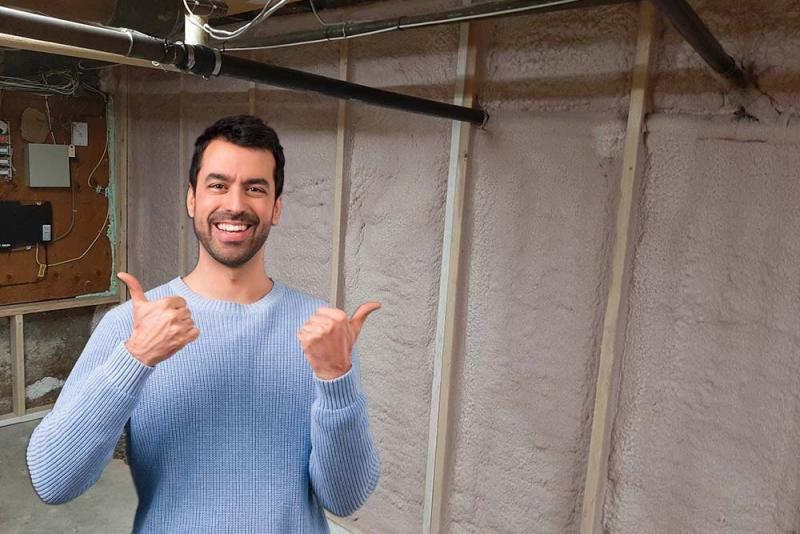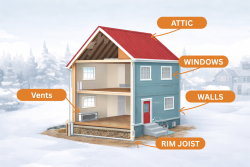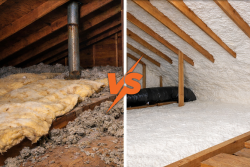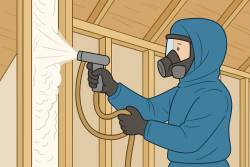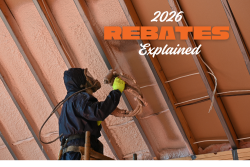Both new homes and retrofits can benefit from insulating basement walls in Ontario. The article explains how it is done. Despite the fact that DIY insulation can be effective in certain scenarios, Reitzel Insulation strongly recommends hiring an industry professional to upgrade your basement insulation. By hiring a professional, you can be confident that your upgrade will go smoothly. In addition, you can feel safe knowing that your basement insulation will take care of any potential problems that may arise, such as those caused by inadequate moisture control. Keeping your basement insulation dry in the Ontario climate will help minimize mould growth and extend its life.
What are the benefits of insulating my basement walls in Ontario?
It is important to insulate basement walls to improve a home's overall energy performance and to discourage mould growth. In entertainment rooms, such as home theatres or music studios, basement insulation can also help to add soundproofing. In general, basement insulation provides many benefits to a home.
The benefits include:
- Lower utility bills
- Every floor has fewer drafts and improved home comfort
- An increase in the home's resale value
- Prevention of mould growth
- Improved air quality
- Possible Rebates and Grants
How are basement walls insulated in Ontario?
In Ontario, basement walls can be insulated using four main types of insulation, both for new home construction and retrofits. This includes:
- Spray foam insulation
- Fibreglass insulation
- Cellulose insulation
- Mineral wool insulation
You are not constrained to using only one type for your entire basement - or even just one wall. Combining these four types of basement insulation can maximize performance, affordability, and environmental sustainability.
Spray Foam Insulation
Spray foam insulation is perfect for insulating basements. This is a versatile product that can be applied in tight spaces and hard-to-reach places, such as basement rim joists. Applied professionally, it effectively seals the air in your basement and keeps out moisture, reducing the risk of mould development.
Cellulose Insulation (Blown-In Insulation)
Like spray foam and fibreglass, cellulose insulation can also be used very effectively in open wall cavities, but it is an excellent solution for insulating basement walls that have already been finished or covered with drywall. Insulating basement walls with blown-in cellulose insulation improves energy performance and home comfort.
Fibreglass Batt Insulation
Fibreglass batt insulation can only be applied to basement walls if they have exposed wall cavities.
Fibreglass batt insulation can be easily installed as a blanket wrap in a basement without framing or studs. This allows for a quick and cost-effective installation that enhances energy performance. Furthermore, since recycled materials are used to produce fibreglass batt insulation, it is an environmentally friendly option.
Mineral Wool Insulation
Basement walls are often insulated with mineral wool. As a natural fire-retardant material made of stone fibres, mineral wool insulation can be applied to walls in a basement just like fibreglass batts (i.e. a blanket).
The Best in Basement Insulation
Whether you are building a new home or finishing your current basement, Reitzel Insulation is your source for basement insulation. Let our knowledge and experience work for you.
If you would like to learn more about who we are or what we do, give us a call or fill out our contact form and we will get in touch with you.
Call us today at 1-800-265-8869 for your free assessment or request an estimate by clicking the button below. Ask us about rebates and Grants.
